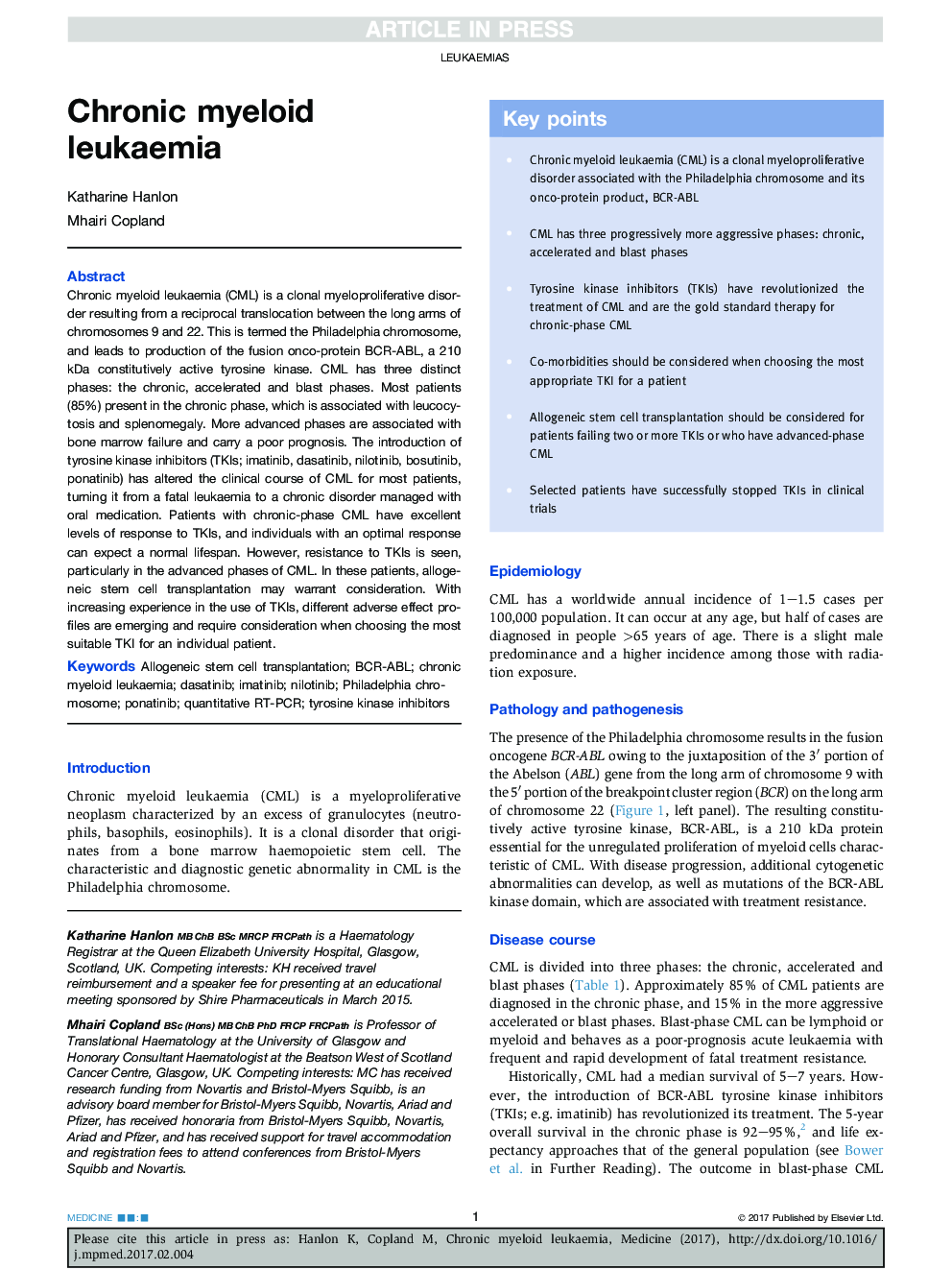| کد مقاله | کد نشریه | سال انتشار | مقاله انگلیسی | نسخه تمام متن |
|---|---|---|---|---|
| 5681088 | 1408806 | 2017 | 5 صفحه PDF | دانلود رایگان |
عنوان انگلیسی مقاله ISI
Chronic myeloid leukaemia
ترجمه فارسی عنوان
لوسمی مزمن میلوئیدی
دانلود مقاله + سفارش ترجمه
دانلود مقاله ISI انگلیسی
رایگان برای ایرانیان
کلمات کلیدی
BCR-ABLponatinibquantitative RT-PCR - RT-PCR کمیImatinib - ایماتینیبDasatinib - داساتینیبchronic myeloid leukaemia - لوسمی میلوئیدی مزمنTyrosine kinase inhibitors - مهار کننده های تیروزین کینازNilotinib - نیلوتینیبAllogeneic stem cell transplantation - پیوند سلول های بنیادی آلوژنیکPhiladelphia chromosome - کروموزوم فیلادلفیا
موضوعات مرتبط
علوم پزشکی و سلامت
پزشکی و دندانپزشکی
پزشکی و دندانپزشکی (عمومی)
چکیده انگلیسی
Chronic myeloid leukaemia (CML) is a clonal myeloproliferative disorder resulting from a reciprocal translocation between the long arms of chromosomes 9 and 22. This is termed the Philadelphia chromosome, and leads to production of the fusion onco-protein BCR-ABL, a 210 kDa constitutively active tyrosine kinase. CML has three distinct phases: the chronic, accelerated and blast phases. Most patients (85%) present in the chronic phase, which is associated with leucocytosis and splenomegaly. More advanced phases are associated with bone marrow failure and carry a poor prognosis. The introduction of tyrosine kinase inhibitors (TKIs; imatinib, dasatinib, nilotinib, bosutinib, ponatinib) has altered the clinical course of CML for most patients, turning it from a fatal leukaemia to a chronic disorder managed with oral medication. Patients with chronic-phase CML have excellent levels of response to TKIs, and individuals with an optimal response can expect a normal lifespan. However, resistance to TKIs is seen, particularly in the advanced phases of CML. In these patients, allogeneic stem cell transplantation may warrant consideration. With increasing experience in the use of TKIs, different adverse effect profiles are emerging and require consideration when choosing the most suitable TKI for an individual patient.
ناشر
Database: Elsevier - ScienceDirect (ساینس دایرکت)
Journal: Medicine - Volume 45, Issue 5, May 2017, Pages 287-291
Journal: Medicine - Volume 45, Issue 5, May 2017, Pages 287-291
نویسندگان
Katharine Hanlon, Mhairi Copland,
